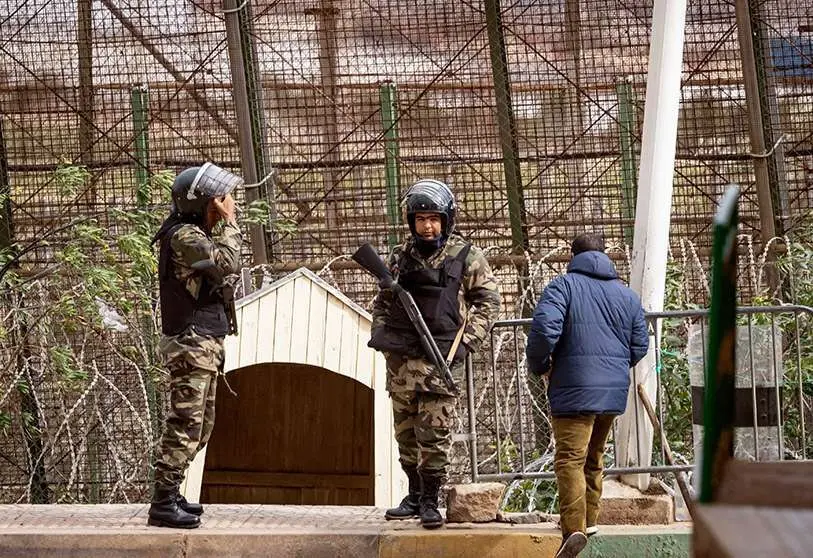Ceuta and Melilla, liquid international relations, multiple identities

The Spanish press and politicians were practically unanimous in criticising Pedro Sánchez's recognition of Moroccan sovereignty over the Sahara and the fact that no clear counterparts had been obtained for this decision, insisting that no guarantees had been obtained regarding Ceuta and Melilla, when these two autonomous cities will not depend on Morocco's will alone in the future. Needless to say, the inclusion of such a guarantee of permanence was impossible to achieve and would have no decisive effect. What they were really expressing was their yearning for fixed, stable, definitive and closed futures in the midst of liquid (post)modernity, which no longer seems feasible. Not only in reality but also in the approaches and reflections that do not support immutable truths, fixities, solid foundations, even if they were chained together with agreements about the future, they would not be useful.
Some considerations are pertinent regarding an eventual change in the sovereignty of Ceuta and Melilla, a prospect also dominated by the inconsistency of forecasts and the fluidity of historical events and mentalities.
1- The criterion of territoriality as a basis for sovereignty implies unilateralism.
We see that the territoriality criterion is always based on unilateralism; it is a claim of one party and avoids the possibility of agreement. The present gives us equally strong and unflattering examples of unilateralism. Take Russia-Ukraine or China-Taiwan, for example. Empirical and material verification frees us to formulate hypotheses and conjectures about the territoriality-unilateralism binomial.
2.- There is no principle of international legality that supports the change of sovereignty, as it does not form part of the 17 non-self-governing territories.
This would be the only legal basis in accordance with international legality, which would enable a change in sovereignty; there would be no other international norm as a basis, in any case, only cultural, historical and geographical arguments, which are also conflicting criteria. Without forgetting the principle of territorial integrity and respect for established borders.
3.- Unredeemed territories are always all imaginary
All nationalist movements have conceived their ultimate borders beyond their real and present territories, pending their emancipation, as in the case of Russia in relation to Ukraine and others, the Great Morocco of Allal al Fassi, Euskadi in relation to Navarre and the French Basque Country, Catalonia in relation to the so-called Catalan countries... The expansionist character of nationalism is based on a supposedly idyllic and failed primordial harmony and integrity that should be restored. An idealisation of the imaginary order.
4 - In questions of nationality, the opposing criteria are territorial and personal, territory being the only pole of the dichotomy.
To the point that ius sanguinis or ius solis will be what determines nationality or belonging, and where historical, cultural, religious and ethnic implications come to a head and coagulate.
5.- The will of the people is always imposed on the territory, as the latter is not a subject of law.
The same right of self-determination recognised by international law, with the limitations and limitations it has, falls to the population, of which the people are the sole holders in any case.
6.- Evolution of citizen convictions, identifications, solidarities and the emergence of multiple identities.
If in the 1960s Spanish students were demonstrating with patriotism for a "Spanish Gibraltar", no one would do so today. And others, such as the writer Sergio del Molino or myself, want Gibraltar to remain British; without a British Gibraltar, the Strait would lose its uniqueness, diversity and attractiveness and become more homogeneous and indistinct. Moreover, it would not affect any idea of Spain, it would neither take anything away nor put anything in. It would also mean an amputation of our true and real history in favour of a revoked and essentialist one.
7.- In a short time the Muslim population will be the majority in the two cities.
This is where multiple identities, culture, and the transition from minority to majority within the same constitutional framework of equal rights and obligations would come into play. To be in Spain is to belong to Europe while also living in Moroccan culture and geography, and with the exceptionally lively and preferential loyalty of particular affiliation to Ceuta and Melilla. The diversity of these cities in close connection with their surrounding environments will increase their projection, complement, shared wealth in the interrelation of the two parties.
It is very difficult to conceive of the two cities as compact and closed units, in a situation of disjunctive sovereignty, surely not born in their midst. In the face of this dichotomous binarism, what will reasonably prevail in each of the cities will be the extraordinary singularity of each with its own life and evolution, sharing basic loyalties and legal framework, and coexisting interculturally without each renouncing its multiple identities.
José María Lizundia is editor of Ensayos Saharianos and author of five books on the Sahara. He has been translated into Arabic
